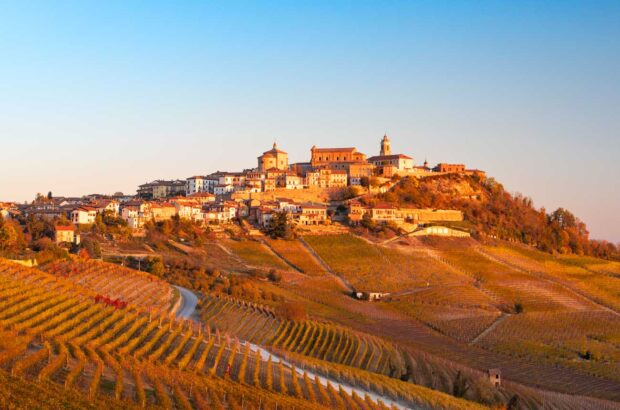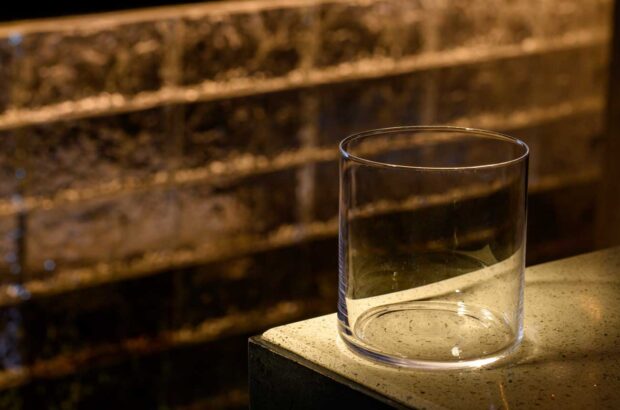Sustainability is one of today’s buzzwords, not least in the wine industry. However, its meaning – and its multiple facets – is often forgotten and misunderstood.
At Justerini & Brooks sustainability is understood holistically and with an equal focus on environmental, ethical and social indicators. It directly informs how the team of buyers select the producers the company works with and the wines it sells. This in turn means Justerini & Brooks have created a community of like-minded producers (and consumers!) who share the same values, and work, both individually and collectively, in ways that guarantee the future of their landscapes and communities.
Justerini & Brooks works in partnership with winemakers to support their mindful work and to find ways to minimise the impact of the supply chain from grape to glass – for example by exploring alternative packaging and transportation solutions. This while the company does its share in the last mile: Justerini & Brooks have partnered with delivery service Great Bear, who use hybrid delivery vans, and are now sending out tasting samples in more eco-friendly 50ml and 100ml bottles.
The wines and producers below are representative of this understanding of what viticulture, winemaking and wine drinking should be; a pleasure founded on respect for terroir and history, attuned to the cycles of nature and aware of the limited resources available to Man.
 Pascal Doquet, Arpège Premier Cru Extra-Brut, Champagne, NV
Pascal Doquet, Arpège Premier Cru Extra-Brut, Champagne, NV
Pascal Doquet established his own estate in 2004 and today farms 8 hectares of vines, situated predominantly in Mesnil, Vertus and Bergers and are aged between 37-77 years old. Pascal is a vineyard man through and through; his viticultural methods are 100% organic whilst the other distinguishing feature of his philosophy is to harvest grapes as ripe as possible, so there is never any need for chaptalisation. The winemaking is very natural and non-interventionist, only wild yeasts are used for fermentations and bottling takes place with the lightest of filtrations and no fining. These are thrillingly individual intense and powerful Champagnes, each cuvée vividly expressing its own unique and distinct character.
Arpège is a premier cru Blanc de Blancs, and a big step up from Pascal’s entry level Horizon.The multi-village arpeggio effect, coupled with music-lover Pascal’s organic farming and patient winemaking makes for a very fine savoury, characterful Blanc de Blancs equally enjoyable on its own or alongside food.
£35.42 available here
Kühling-Gillot, Nierstein, Riesling, Trocken, Rheinhessen, 2016
Kuhling-Gillot – and sister project Battenfeld-Spanier – focus on producing great dry wines from top Rheinhessen vineyards with a minimum of intervention. Both estates are run under Biodynamic principles and without the use of fertilisers or pesticides. Run by the young, enthusiastic husband-and-wife team Olivier and Carolin, these estates are making some of Germany’s most exciting dry wines.
This Niesrtaien Riesling is a blend comprising grapes from the South East facing Pettenthal and the South facing Oldberg vineyards, spontaneously fermented to under 5g of residual sugar. Ageing takes place in Stuckfass (1200 litres wood vessels). With wild flowers, salt, grapefruit and fine wild herbs, this shows wonderful balance, with an open knit, but finely pitched palate of delicate elegance. Gentle but broad in spectrum. Impressive and great value.
£23 available here
 Château de Meursault, Bourgogne Blanc ‘Clos du Château’, Burgundy 2017
Château de Meursault, Bourgogne Blanc ‘Clos du Château’, Burgundy 2017
Justerini & Brooks has worked with Château de Meursault since 2012 when it was bought by Olivier Halley and the estate’s fortunes began to change: his aim was to make it one of the most hallowed estates in Burgundy. Winemaking is now overseen by Stephane Follin-Arbelet and under his direction the Château is currently undergoing conversion to organic, increasing the size of the picking teams, and lowering yields.
Their Clos du Château, from an east-facing Clos on the grounds of the Château, is one of their signature wines. A chalky and classical Côte de Beaune. Pure and impeccably balanced, full of bright, juicy and generous fruit. A bright citrus note brings a mouth-watering freshness, returning to more chalky limestone echoes on the finish. Very moreish with 25% aged in oak barrels for months.
£28.68 available here
 Domaine du Pélican, Savagnin Ouillé, Arbois, Jura, 2019
Domaine du Pélican, Savagnin Ouillé, Arbois, Jura, 2019
Since its inception, in Montigny-lès-Arsures, in 2012, Domaine du Pélican has rapidly established itself as one of Jura’s leading lights, producing exceptional biodynamic wines that mix finesse with thrilling Jurassien character. This is their topped-up expression of Savagnin (as opposed to sous voile), made from different parcels located in Arbois and Montigny-les-Arsures on a variety of soils. Ripe, enticingly floral peach and citrus blossom aromas give way to a solid, crispy and salty palate. An exotic papaya note is offset beautifully by a squeeze of lime, whilst hints of salt-rubbed citrus and ruby grapefruit provide some cut and thrust. A seamless balance of tropical and cool climate characters that is fruity yet complex and palate-cleansing.
£33.67 available here
 Domaine Montrose, Prestige Rosé, Côtes de Thongue, Languedoc, 2020
Domaine Montrose, Prestige Rosé, Côtes de Thongue, Languedoc, 2020
A lovely blend of Grenache, Rolle (Vermentino) and Syrah from Domaine’s Montrose showing their elegant, mineral-driven style, that speaks of the estate’s volcanic and Villafranchien terrasses. Intense ripe citrus fruits, fine red berries and a touch of marine salinity weaved for a crisp, vibrant wine. A great (and outstanding value) alternative to Provençal pink, from a certified Carbon Neutral domaine.
£11.17 available here
 Clusel Roch, Côte Rôtie, Northern Rhône, 2016
Clusel Roch, Côte Rôtie, Northern Rhône, 2016
Clusel Roch is a small artisanal Domaine, run by Brigitte Roch, Gilbert Clusel and their son Guillaume, which only employs organic methods to work its vineyards and for some time have consistently had some of the lowest yields in the region. Such low yields and excellent sites help to produce excellent wines that are made in a gentle, pure and refined style.
This 2016 is a wonderful marriage of their elegant style and the depth of a great vintage. Less muscular than the 2015 but not without power, this offers wonderfully clear and pure black and red cherry fruit, with touches of fresh raspberry and fruit blossom. A lively yet toned Côte Rôtie, exceedingly harmonious and well-crafted.
£42.18 available here
 Monteraponi, Chianti Classico, Tuscany, 2019
Monteraponi, Chianti Classico, Tuscany, 2019
The Chianti farmhouse of Monteraponi, an ancient mediaeval hamlet once owned by Baron Ugo, Marquis of Tuscany, has been fully converted to organic farming by current owner Michele Braganti. The vineyard area, all in the commune of Radda in Chianti Classico, spans 12 hectares planted on a mixture of hard Albarese and softer Galestro limestone soils. Monteraponi’s wines gained cult-following for their dazzlingly pure, characterful wines, made in a traditional low-tech way.
This 2019 is more concentrated and tannic than the juicy and open 2018 but with plenty of finesse and fluidity nonetheless. The tannins are ripe and wrap neatly around the cherry fruit. A toned muscular quality adds a structure that is beautifully tailored to the fine aromatic profile. This exhibits all the qualities that make Radda Chianti so elegantly poised.
£22.79 available here
 4 Monos Viticultores, GR10, Sierra de Gredos, 2017
4 Monos Viticultores, GR10, Sierra de Gredos, 2017
The 4 Monos project, which means “4 Monkeys”, was established by four friends who met whilst hiking in the Gredos mountains. They farm 10 hectares of old vineyards to make fabulous Garnacha-based wines that are bright, racy, and crystalline – a product in part of the fine, decomposed granite soils on which they are grown.
GR10 is their entry level regional wine, a blend of 85% Garnacha 12% Carinena and 3% Syrah, named after the famous hiking route that signifies the friends’ connection to the mountain and the journey they have been on together. Light on its feet, fresh, with juicy wild berry flavours. Enticing, floral aromas lead into a deliciously juicy and effortlessly enjoyable palate. A bottle won’t hang around long!
£13.68 available here
 David & Nadia, Grenache, Swartland, South Africa, 2020
David & Nadia, Grenache, Swartland, South Africa, 2020
David & Nadia Sadie are a young husband-and-wife team whose thoughtful, sensitive approach to viticulture and winemaking has made them one of Swartland’s shining stars, as did their efforts to nurture and restore the region’s old vineyards.
Grenache became, along with Chenin Blanc, their flagship variety – namely through this single-varietal iteration known for its juiciness and purity. The core of the fruit hails from a Paardeberg granite-based site planted in the early 2000s, and is blended with an organically certified vineyard planted in deep rich clay soils, north of Malmesbury, and a young Schist vineyard established by David Sadie. The wine unfurls in the glass and becomes really interesting – fragrant but juicy with a bright, saline quality running through it. Sophisticated, thirst-quenching Grenache at just 13% ABV.
£26.68 available here
 Frog’s Leap Winery, Merlot, Rutherford, California, 2018
Frog’s Leap Winery, Merlot, Rutherford, California, 2018
Since 1981, and with the talented John Williams at its helm, Frog’s Leap has been a beacon of low intervention, terroir-driven winemaking in California. Williams was a true sustainability pioneer, both environmental and social, and his work inspired many others in California and beyond.
This Merlot is a great example of his attunement to terroir, with the variety planted in Rutherford’s few pockets of clay rich soils. At once subtle and vibrant, with a lovely combination of red fruit, plum, liquorice and sweet spice. The palate has silky tannins and a silky pure acidity that accentuates the fruit with a herbal edge. Delicious now but also worthy of cellaring for up to ten years.
£34.68 available here
Justerini & Brooks, established in 1749, is well-known for its unrivalled portfolio from some of the world’s greatest Châteaux, estates and domaines. The fine wine merchant is also committed to unearthing and championing young, new talent, as well as offering its customers an extensive range of immediate drinking wines.



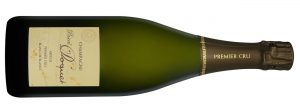 Pascal Doquet, Arpège Premier Cru Extra-Brut, Champagne, NV
Pascal Doquet, Arpège Premier Cru Extra-Brut, Champagne, NV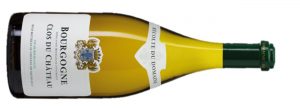 Château de Meursault, Bourgogne Blanc ‘Clos du Château’, Burgundy 2017
Château de Meursault, Bourgogne Blanc ‘Clos du Château’, Burgundy 2017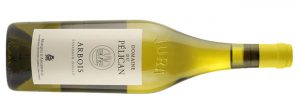 Domaine du Pélican, Savagnin Ouillé, Arbois, Jura, 2019
Domaine du Pélican, Savagnin Ouillé, Arbois, Jura, 2019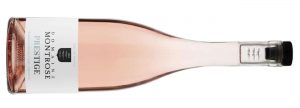 Domaine Montrose, Prestige Rosé, Côtes de Thongue, Languedoc, 2020
Domaine Montrose, Prestige Rosé, Côtes de Thongue, Languedoc, 2020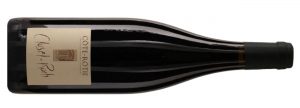 Clusel Roch, Côte Rôtie, Northern Rhône, 2016
Clusel Roch, Côte Rôtie, Northern Rhône, 2016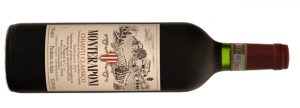 Monteraponi, Chianti Classico, Tuscany, 2019
Monteraponi, Chianti Classico, Tuscany, 2019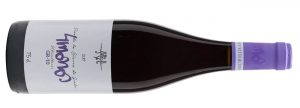 4 Monos Viticultores, GR10, Sierra de Gredos, 2017
4 Monos Viticultores, GR10, Sierra de Gredos, 2017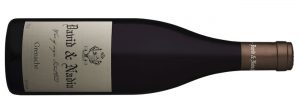 David & Nadia, Grenache, Swartland, South Africa, 2020
David & Nadia, Grenache, Swartland, South Africa, 2020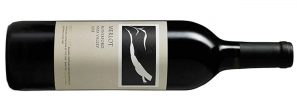 Frog’s Leap Winery, Merlot, Rutherford, California, 2018
Frog’s Leap Winery, Merlot, Rutherford, California, 2018

